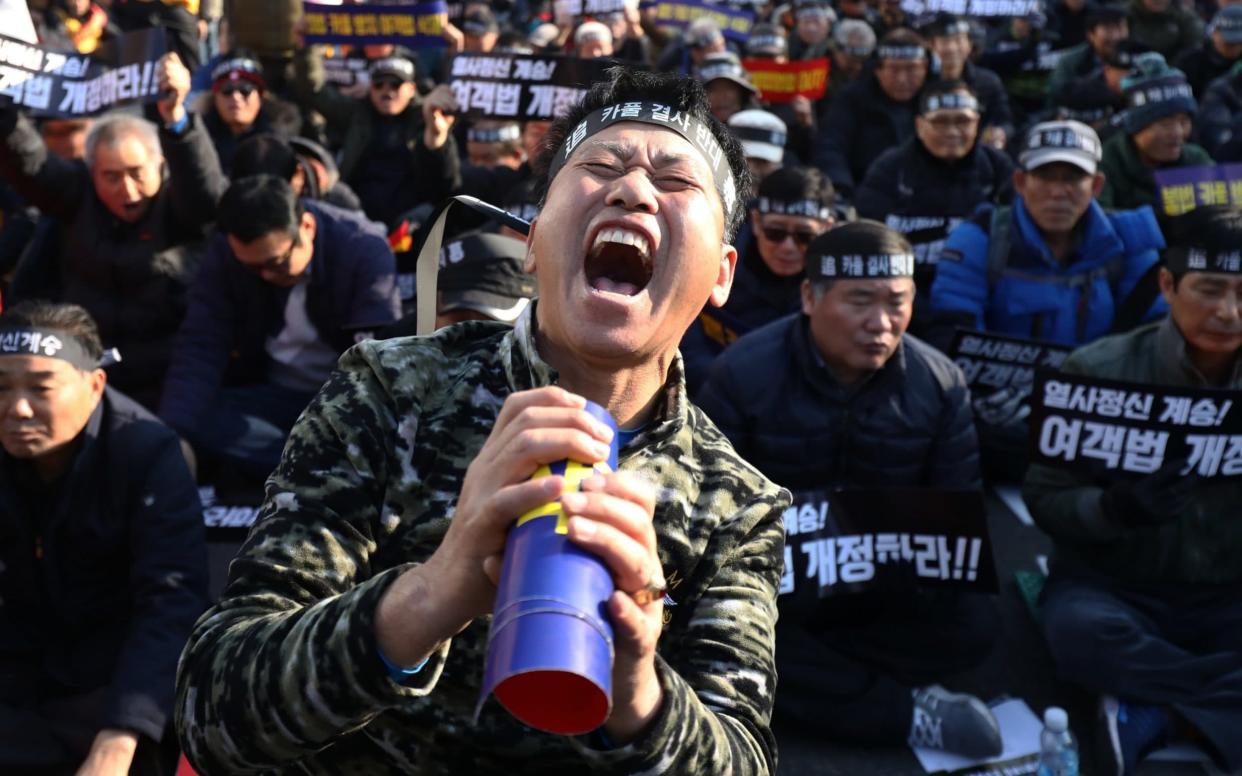Seoul taxi driver sets himself alight in protest at ride-sharing app

A second South Korean taxi driver has died after setting himself on fire inside his vehicle in protest at plans to introduce a cut-price ride-sharing service in Seoul.
Images of a taxi on fire close to Gwanghwamun Station, in central Seoul, were widely shared in social media on Wednesday evening. The driver was pulled from the vehicle and treated at a nearby hospital for severe burns but died on Thursday morning, police told the Yonhap news agency.
Authorities have only identified the man by his last name, Lim, and are investigating in the belief that it was a suicide.
Mr Lim’s death is the second being linked to plans to launch Kakao T Carpool, a car-sharing app that has been created by Kakao Corp, one of South Korea’s largest IT companies.
In December, a 57-year-old driver with the family name Choi poured a flammable liquid over himself while behind the wheel of his car as it was parked outside the South Korean parliament and set fire to himself.
In a suicide note, Mr Choi wrote, “I am sacrificing my life in the hopes that taxi drivers can earn livable wages one day”.

Mr Choi’s death sparked a series of protests by the capital’s cab drivers, with an estimated 100,000 drivers demonstrating outside the national assembly four days later and demanding that the government ban the Kakao T app.
The service is as much as 30 percent cheaper than taxi fares and 70,000 people had registered as drivers before Mr Choi’s death, suggesting that it would have been popular and had a serious impact on the taxi industry.
The company quickly halted testing of the service and expressed its regret for Mr Choi’s death, although Kakao Corp. has not declared that it is cancelling the scheme entirely.
Support for the drivers has been limited, however, due to a reputation for underhand practices within the industry.
Drivers routinely refuse to take passengers who are only going a short distance late at night, have been accused of driving too fast or dangerously in order to complete a trip as quickly as possible and have been known to over-charge customers, particularly foreign visitors.
A driver in Busan was fined this week after picking up a British couple from the International Passenger Terminal at Busan Port and charging them nearly £14 for a journey of less than 2 miles, approximately four times the real fare.


